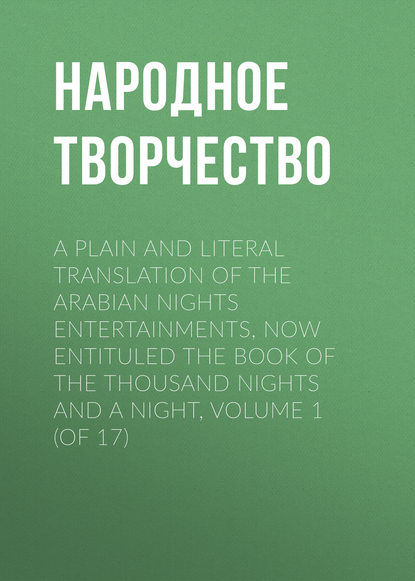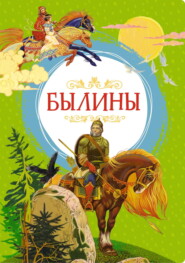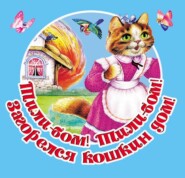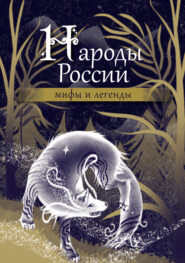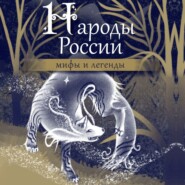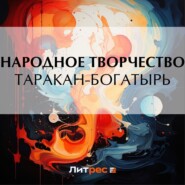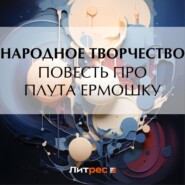По всем вопросам обращайтесь на: info@litportal.ru
(©) 2003-2024.
✖
A plain and literal translation of the Arabian nights entertainments, now entituled The Book of the Thousand Nights and a Night, Volume 1 (of 17)
Настройки чтения
Размер шрифта
Высота строк
Поля
That is "make his bow;" as the English peasant pulls his forelock. Lane (i., 249) suggests, as an afterthought, that it means: – "Recover thy senses; in allusion to a person's drawing his hand over his head after sleep or a fit." But it occurs elsewhere in the sense of "cut thy stick."
190
This would be a separate building like our family tomb and probably domed, resembling that mentioned in "The King of the Black Islands." Europeans usually call it "a little Wali;" or, as they write it, "Wely;" the contained for the container; the "Santon" for the "Santon's tomb." I have noticed this curious confusion (which begins with Robinson, i. 322) in "Unexplored Syria," i. 161.
191
Arab. "Wiswás;"=diabolical temptation or suggestion. The "Wiswásí" is a man with scruples (scrupulus, a pebble in the shoe), e. g. one who fears that his ablutions were deficient, etc.
192
Arab. "Katf"=pinioning by tying the arms behind the back and shoulders (Kitf), a dire disgrace to freeborn men.
193
Arab. "Nafs."=Heb. Nephesh (Nafash)=soul, life; as opposed to "Ruach"=spirit and breath. In these places it is equivalent to "I said to myself." Another form of the root is "Nafas," breath, with an idea of inspiration: so "Sáhib Nafas" (=master of breath) is a minor saint who heals by expiration, a matter familiar to mesmerists (Pilgrimage, i. 86).
194
Arab. "Kaus al-Banduk;" the "pellet-bow" of modern India; with two strings joined by a bit of cloth which supports a ball of dry clay or stone. It is chiefly used for birding.
195
In the East blinding was a common practice, especially in the case of junior princes not required as heirs. A deep perpendicular incision was made down each corner of the eyes; the lids were lifted and the balls removed by cutting the optic nerve and the muscles. The later Caliphs blinded their victims by passing a red-hot sword blade close to the orbit or a needle over the eyeball. About the same time in Europe the operation was performed with a heated metal basin – the well-known bacinare (used by Ariosto), as happened to Pier delle Vigne (Petrus de Vineâ), the "godfather of modern Italian."
196
Arab. "Khinzír" (by Europeans pronounced "Hanzír"), prop. a wild-boar; but popularly used like our "you pig!"
197
Striking with the shoe, the pipe-stick and similar articles is highly insulting, because they are not made, like whips and scourges, for such purpose. Here the East and the West differ diametrically. "Wounds which are given by instruments which are in one's hands by chance do not disgrace a man," says Cervantes (D. Q. i., chapt. 15), and goes on to prove that if a Zapatero (cobbler) cudgel another with his form or last, the latter must not consider himself cudgelled. The reverse in the East where a blow of a pipe-stick cost Mahommed Ali Pasna's son his life: Ishmail Pasha was burned to death by Malik Nimr, chief of Shendy (Pilgrimage, i., 203). Moreover, the actual wound is less considered in Moslem law than the instrument which caused it: so sticks and stones are venial weapons, whilst sword and dagger, gun and pistol are felonious. See ibid. (i., 336) for a note upon the weapons with which nations are policed.
198
Incest is now abominable everywhere except amongst the overcrowded poor of great and civilised cities. Yet such unions were common and lawful amongst ancient and highly cultivated peoples, as the Egyptians (Isis and Osiris), Assyrians and ancient Persians. Physiologically they are injurious only when the parents have constitutional defects: if both are sound, the issue, as amongst the so-called "lower animals," is viable and healthy.
199
Dwellers in the Northern Temperates can hardly imagine what a dust-storm is in sun-parched tropical lands. In Sind we were often obliged to use candles at midday, while above the dust was a sun that would roast an egg.
200
Arab. "'Urban," now always used of the wild people, whom the French have taught us to call les Bedouins; "Badw" being a waste or desert; and Badawi (fem. Badawíyah, plur. Badáwi and Bidwán), a man of the waste. Europeans have also learnt to miscall the Egyptians "Arabs": the difference is as great as between an Englishman and a Spaniard. Arabs proper divide their race into sundry successive families. "The Arab al-Arabá" (or al-Aribah, or al-Urubíyat) are the autochthones, prehistoric, proto-historic and extinct tribes; for instance, a few of the Adites who being at Meccah escaped the destruction of their wicked nation, but mingled with other classes. The "Arab al-Muta'arribah," (Arabised Arabs) are the first advenæ represented by such noble strains as the Koraysh (Koreish), some still surviving. The "Arab al-Musta'aribah," (insititious, naturalised or instituted Arabs, men who claim to be Arabs) are Arabs like the Sinaites, the Egyptians and the Maroccans descended by intermarriage with other races. Hence our "Mosarabians" and the "Marrabais" of Rabelais (not, "a word compounded of Maurus and Arabs"). Some genealogists, however, make the Muta'arribah descendants of Kahtan (possible the Joktan of Genesis x., a comparatively modern document, B.C. 700?); and the Musta'aribah those descended from Adnán the origin of Arab genealogy. And, lastly, are the "Arab al-Musta'ajimah," barbarised Arabs, like the present population of Meccah and Al-Medinah. Besides these there are other tribes whose origin is still unknown; such as the Mahrah tribes of Hazramaut, the "Akhdám" (=serviles) of Oman (Maskat); and the "Ebná" of Al-Yaman: Ibn Ishak supposes the latter to be descended from the Persian soldiers of Anushirwan who expelled the Abyssinian invader from Southern Arabia. (Pilgrimage, iii., 31, etc.).
201
Arab. "Amír al-Muuminín." The title was assumed by the Caliph Omar to obviate the inconvenience of calling himself "Khalífah" (successor) of the Khalífah of the Apostle of Allah (i. e. Abu Bakr); which after a few generations would become impossible. It means "Emir (chief or prince) of the Muumins;" men who hold to the (true Moslem) Faith, the "Imán" (theory, fundamental articles) as opposed to the "Dín," ordinance or practice of the religion. It once became a Wazirial title conferred by Sultan Malikshah (King King-king) on his Nizám al-Mulk. (Richardson's Dissert. lviii).
202
This may also mean "according to the seven editions of the Koran," the old revisions and so forth (Sale, Sect. iii. and D'Herbelot "Alcoran.") The schools of the "Mukri," who teach the right pronunciation wherein a mistake might be sinful, are seven, Hamzah, Ibn Katír, Ya'akúb, Ibn Amir, Kisái, Asim and Hafs, the latter being the favourite with the Hanafis and the only one now generally known in Al-Islam.
203
Arab. "Sadd"=wall, dyke, etc. the "bund" or "band" of Anglo-India. Hence the "Sadd" on the Nile, the banks of grass and floating islands which "wall" the stream. There are few sights more appalling than a sandstorm in the desert, the "Zauba'ah" as the Arabs call it. Devils, or pillars of sand, vertical and inclined, measuring a thousand feet high, rush over the plain lashing the sand at their base like a sea surging under a furious whirlwind; shearing the grass clean away from the roots, tearing up trees, which are whirled like leaves and sticks in air, and sweeping away tents and houses as if they were bits of paper. At last the columns join at the top and form, perhaps three thousand feet above the earth, a gigantic cloud of yellow sand which obliterates not only the horizon but even the midday sun. These sand-spouts are the terror of travellers. In Sind and the Punjab we have the dust-storm which for darkness, I have said, beats the blackest London fog.
204
Arab. Sár=the vendetta, before mentioned, as dreaded in Arabia as in Corsica.
205
Arab. "Ghútah," usually a place where irrigation is abundant. It especially applies (in books) to the Damascus-plain because "it abounds with water and fruit trees." Bochart (Geog. Sacra, p. 90) derives עוטה (utah) from עוץ Uz, son of Arab, who (he says) founded Damascus. The Ghutah is one of the four earthly paradises, the others being Basrah (Bassorah), Shiraz and Samarcand. Its peculiarity is the likeness to a seaport; the Desert which rolls up almost to its doors being the sea and its ships being the camels. The first Arab to whom we owe this admirable term for the "Companion of Job" is "Tarafah" one of the poets of the Suspended Poems: he likens (v.v. 3, 4) the camels which bore away his beloved to ships sailing from Aduli. But "ships of the desert" is doubtless a term of the highest antiquity.
206
The exigencies of the "Saj'a," or rhymed prose, disjoint this and many similar passages.
207
The "Ebony" Islands; Scott's "Isle of Ebene," i., 217.
208
"Jarjarís" in the Bul. Edit.
209
Arab. "Takbís." Many Easterns can hardly sleep without this kneading of the muscles, this "rubbing" whose hygienic properties England is now learning.
210
The converse of the breast being broadened, the drooping, "draggle-tail" gait compared with the head held high and the chest inflated.
211
This penalty is mentioned in the Koran (chapt. v.) as fit for those who fight against Allah and his Apostle; but commentators are not agreed if the sinners are first to be put to death or to hang on the cross till they die. Pharaoh (chapt xx.) threatens to crucify his magicians on palm-trees, and is held to be the first crucifier.
212
Arab. "'Ajami"=foreigner, esp. a Persian: the latter in The Nights is mostly a villain. I must here remark that the contemptible condition of Persians in Al-Hijáz (which I noted in 1852, Pilgrimage i. 327) has completely changed. They are no longer, "The slippers of Ali and hounds of Omar: " they have learned the force of union and now, instead of being bullied, they bully.
213
The Calc. Edit. turns them into Tailors (Khayyátín) and Torrens does not see the misprint.
214
190
This would be a separate building like our family tomb and probably domed, resembling that mentioned in "The King of the Black Islands." Europeans usually call it "a little Wali;" or, as they write it, "Wely;" the contained for the container; the "Santon" for the "Santon's tomb." I have noticed this curious confusion (which begins with Robinson, i. 322) in "Unexplored Syria," i. 161.
191
Arab. "Wiswás;"=diabolical temptation or suggestion. The "Wiswásí" is a man with scruples (scrupulus, a pebble in the shoe), e. g. one who fears that his ablutions were deficient, etc.
192
Arab. "Katf"=pinioning by tying the arms behind the back and shoulders (Kitf), a dire disgrace to freeborn men.
193
Arab. "Nafs."=Heb. Nephesh (Nafash)=soul, life; as opposed to "Ruach"=spirit and breath. In these places it is equivalent to "I said to myself." Another form of the root is "Nafas," breath, with an idea of inspiration: so "Sáhib Nafas" (=master of breath) is a minor saint who heals by expiration, a matter familiar to mesmerists (Pilgrimage, i. 86).
194
Arab. "Kaus al-Banduk;" the "pellet-bow" of modern India; with two strings joined by a bit of cloth which supports a ball of dry clay or stone. It is chiefly used for birding.
195
In the East blinding was a common practice, especially in the case of junior princes not required as heirs. A deep perpendicular incision was made down each corner of the eyes; the lids were lifted and the balls removed by cutting the optic nerve and the muscles. The later Caliphs blinded their victims by passing a red-hot sword blade close to the orbit or a needle over the eyeball. About the same time in Europe the operation was performed with a heated metal basin – the well-known bacinare (used by Ariosto), as happened to Pier delle Vigne (Petrus de Vineâ), the "godfather of modern Italian."
196
Arab. "Khinzír" (by Europeans pronounced "Hanzír"), prop. a wild-boar; but popularly used like our "you pig!"
197
Striking with the shoe, the pipe-stick and similar articles is highly insulting, because they are not made, like whips and scourges, for such purpose. Here the East and the West differ diametrically. "Wounds which are given by instruments which are in one's hands by chance do not disgrace a man," says Cervantes (D. Q. i., chapt. 15), and goes on to prove that if a Zapatero (cobbler) cudgel another with his form or last, the latter must not consider himself cudgelled. The reverse in the East where a blow of a pipe-stick cost Mahommed Ali Pasna's son his life: Ishmail Pasha was burned to death by Malik Nimr, chief of Shendy (Pilgrimage, i., 203). Moreover, the actual wound is less considered in Moslem law than the instrument which caused it: so sticks and stones are venial weapons, whilst sword and dagger, gun and pistol are felonious. See ibid. (i., 336) for a note upon the weapons with which nations are policed.
198
Incest is now abominable everywhere except amongst the overcrowded poor of great and civilised cities. Yet such unions were common and lawful amongst ancient and highly cultivated peoples, as the Egyptians (Isis and Osiris), Assyrians and ancient Persians. Physiologically they are injurious only when the parents have constitutional defects: if both are sound, the issue, as amongst the so-called "lower animals," is viable and healthy.
199
Dwellers in the Northern Temperates can hardly imagine what a dust-storm is in sun-parched tropical lands. In Sind we were often obliged to use candles at midday, while above the dust was a sun that would roast an egg.
200
Arab. "'Urban," now always used of the wild people, whom the French have taught us to call les Bedouins; "Badw" being a waste or desert; and Badawi (fem. Badawíyah, plur. Badáwi and Bidwán), a man of the waste. Europeans have also learnt to miscall the Egyptians "Arabs": the difference is as great as between an Englishman and a Spaniard. Arabs proper divide their race into sundry successive families. "The Arab al-Arabá" (or al-Aribah, or al-Urubíyat) are the autochthones, prehistoric, proto-historic and extinct tribes; for instance, a few of the Adites who being at Meccah escaped the destruction of their wicked nation, but mingled with other classes. The "Arab al-Muta'arribah," (Arabised Arabs) are the first advenæ represented by such noble strains as the Koraysh (Koreish), some still surviving. The "Arab al-Musta'aribah," (insititious, naturalised or instituted Arabs, men who claim to be Arabs) are Arabs like the Sinaites, the Egyptians and the Maroccans descended by intermarriage with other races. Hence our "Mosarabians" and the "Marrabais" of Rabelais (not, "a word compounded of Maurus and Arabs"). Some genealogists, however, make the Muta'arribah descendants of Kahtan (possible the Joktan of Genesis x., a comparatively modern document, B.C. 700?); and the Musta'aribah those descended from Adnán the origin of Arab genealogy. And, lastly, are the "Arab al-Musta'ajimah," barbarised Arabs, like the present population of Meccah and Al-Medinah. Besides these there are other tribes whose origin is still unknown; such as the Mahrah tribes of Hazramaut, the "Akhdám" (=serviles) of Oman (Maskat); and the "Ebná" of Al-Yaman: Ibn Ishak supposes the latter to be descended from the Persian soldiers of Anushirwan who expelled the Abyssinian invader from Southern Arabia. (Pilgrimage, iii., 31, etc.).
201
Arab. "Amír al-Muuminín." The title was assumed by the Caliph Omar to obviate the inconvenience of calling himself "Khalífah" (successor) of the Khalífah of the Apostle of Allah (i. e. Abu Bakr); which after a few generations would become impossible. It means "Emir (chief or prince) of the Muumins;" men who hold to the (true Moslem) Faith, the "Imán" (theory, fundamental articles) as opposed to the "Dín," ordinance or practice of the religion. It once became a Wazirial title conferred by Sultan Malikshah (King King-king) on his Nizám al-Mulk. (Richardson's Dissert. lviii).
202
This may also mean "according to the seven editions of the Koran," the old revisions and so forth (Sale, Sect. iii. and D'Herbelot "Alcoran.") The schools of the "Mukri," who teach the right pronunciation wherein a mistake might be sinful, are seven, Hamzah, Ibn Katír, Ya'akúb, Ibn Amir, Kisái, Asim and Hafs, the latter being the favourite with the Hanafis and the only one now generally known in Al-Islam.
203
Arab. "Sadd"=wall, dyke, etc. the "bund" or "band" of Anglo-India. Hence the "Sadd" on the Nile, the banks of grass and floating islands which "wall" the stream. There are few sights more appalling than a sandstorm in the desert, the "Zauba'ah" as the Arabs call it. Devils, or pillars of sand, vertical and inclined, measuring a thousand feet high, rush over the plain lashing the sand at their base like a sea surging under a furious whirlwind; shearing the grass clean away from the roots, tearing up trees, which are whirled like leaves and sticks in air, and sweeping away tents and houses as if they were bits of paper. At last the columns join at the top and form, perhaps three thousand feet above the earth, a gigantic cloud of yellow sand which obliterates not only the horizon but even the midday sun. These sand-spouts are the terror of travellers. In Sind and the Punjab we have the dust-storm which for darkness, I have said, beats the blackest London fog.
204
Arab. Sár=the vendetta, before mentioned, as dreaded in Arabia as in Corsica.
205
Arab. "Ghútah," usually a place where irrigation is abundant. It especially applies (in books) to the Damascus-plain because "it abounds with water and fruit trees." Bochart (Geog. Sacra, p. 90) derives עוטה (utah) from עוץ Uz, son of Arab, who (he says) founded Damascus. The Ghutah is one of the four earthly paradises, the others being Basrah (Bassorah), Shiraz and Samarcand. Its peculiarity is the likeness to a seaport; the Desert which rolls up almost to its doors being the sea and its ships being the camels. The first Arab to whom we owe this admirable term for the "Companion of Job" is "Tarafah" one of the poets of the Suspended Poems: he likens (v.v. 3, 4) the camels which bore away his beloved to ships sailing from Aduli. But "ships of the desert" is doubtless a term of the highest antiquity.
206
The exigencies of the "Saj'a," or rhymed prose, disjoint this and many similar passages.
207
The "Ebony" Islands; Scott's "Isle of Ebene," i., 217.
208
"Jarjarís" in the Bul. Edit.
209
Arab. "Takbís." Many Easterns can hardly sleep without this kneading of the muscles, this "rubbing" whose hygienic properties England is now learning.
210
The converse of the breast being broadened, the drooping, "draggle-tail" gait compared with the head held high and the chest inflated.
211
This penalty is mentioned in the Koran (chapt. v.) as fit for those who fight against Allah and his Apostle; but commentators are not agreed if the sinners are first to be put to death or to hang on the cross till they die. Pharaoh (chapt xx.) threatens to crucify his magicians on palm-trees, and is held to be the first crucifier.
212
Arab. "'Ajami"=foreigner, esp. a Persian: the latter in The Nights is mostly a villain. I must here remark that the contemptible condition of Persians in Al-Hijáz (which I noted in 1852, Pilgrimage i. 327) has completely changed. They are no longer, "The slippers of Ali and hounds of Omar: " they have learned the force of union and now, instead of being bullied, they bully.
213
The Calc. Edit. turns them into Tailors (Khayyátín) and Torrens does not see the misprint.
214





